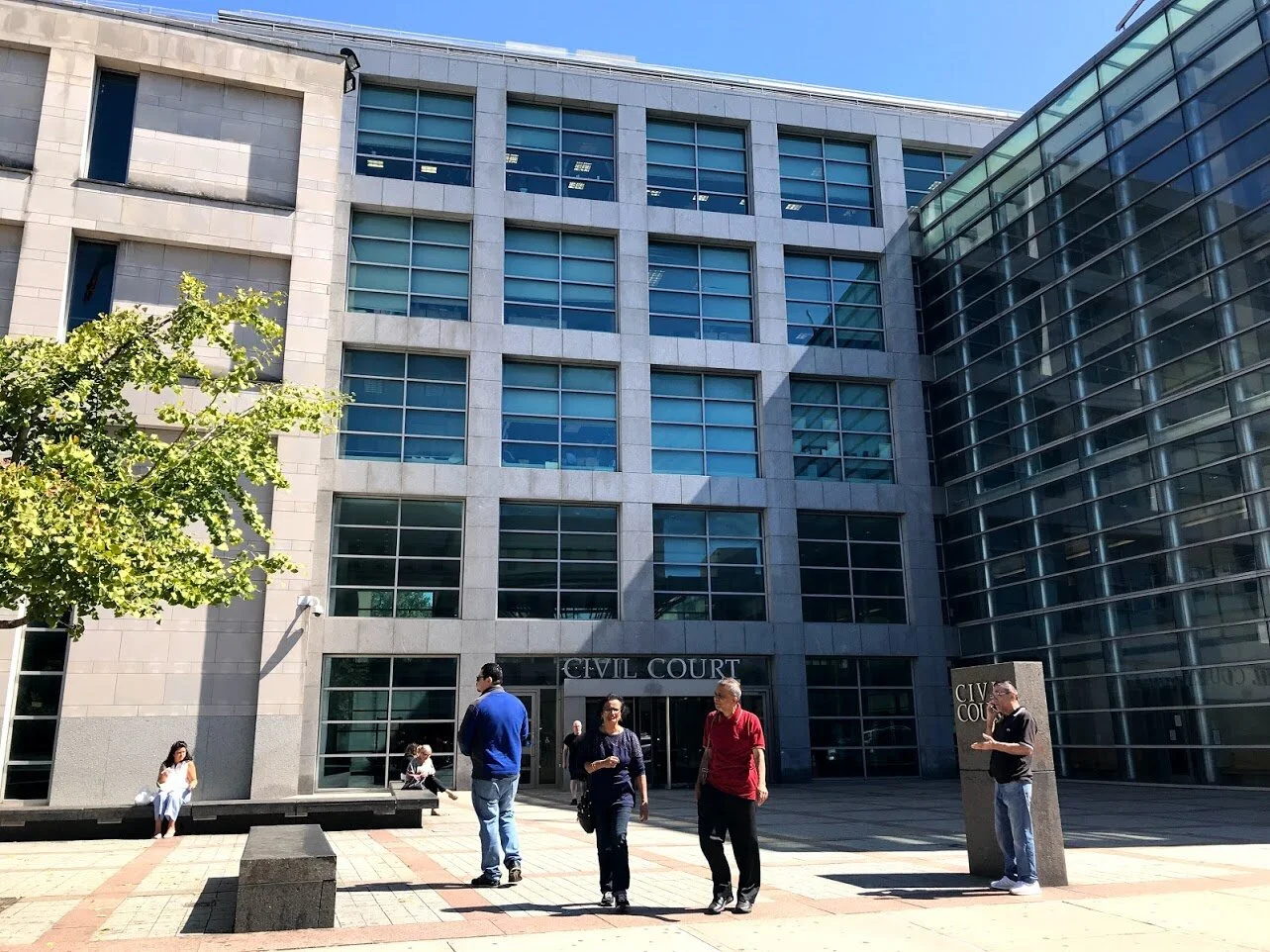First Queens tenant evicted since March start of COVID restrictions
/Queens Housing Court Supervising Judge John Lansden said evictions will continue to occur in Queens unless state lawmakers impose a stricter ban. Eagle photo by David Brand
By David Brand
A New York City marshal has executed the first residential eviction in Queens since the start of state-imposed coronavirus restrictions nearly nine months ago, city data shows.
Marshal Edward Guida carried out the eviction Nov. 30 at a third-floor apartment at 98-59 Corona Ave. in Corona, according to the Department of Investigation, which oversees city marshals.
The apartment was empty when Guida arrived to kick the tenant out, said Marshals Association spokesperson Matthew Walsh. Guida had served the tenant with notice of the eviction on Nov. 12, Walsh said.
It was the first legal eviction in Queens since March 13, three days before state court leaders and Gov. Andrew Cuomo began issuing a series of orders to prohibit landlords and marshals from forcing tenants from their homes.
An eviction ban remains in place for tenants whose cases were pending as of March 7, but marshals can begin evicting tenants whose cases were adjudicated prior to that date. The case of the Corona tenant evicted Nov. 30 began in 2019, records show.
Information about the case and the tenant was no longer available on the state’s e-courts website following the eviction, however. This story will be updated with more information.
The tenant lived in a third-floor apartment in the four-unit building, which includes a ground-level printing company. Property owner Friendly Realty LLC did not respond to requests for comment, nor did the printer.
The Corona eviction was one of at least eight executed by marshals across New York City since Nov. 13, city data shows. Five residential and commercial tenants were evicted in Brooklyn, one commercial tenant in Manhattan and one residential tenant in the Bronx, according to DOI reports.
A state law known as the Tenant Safe Harbor Act prevents evictions for tenants who can prove “financial hardship” resulting from the coronavirus pandemic if their cases were pending on March 7. An order from the Centers for Disease Control and Prevention also suspends most evictions until Jan. 1, 2021.
As Law360 has reported, Cuomo’s latest executive order allows tenants who faced eviction for nonpayment of rent before March 7 to seek a suspension under the Tenant Safe Harbor Act’s hardship defense. If a judge determines that they qualify, they can remain in their homes until Jan. 1, 2021.
But many individuals whose cases were adjudicated before the pandemic are not covered by those protections.
“The CDC rules and the Safe Harbor Act go a long way to limiting the types of cases where an eviction can occur, but they do not present a blanket against eviction,” said Queens Housing Court Supervising Judge John Lansden. “At the end of the day, the law still allows evictions in some cases.”
Housing Court trials resumed in September after a roughly six-month suspension.
Lansden said more evictions will take place in Queens in the coming months, despite the resurgence of the coronavirus across the state.
“I think it would be safe to assume that in the upcoming year, absent any further legislation, we will see more evictions,” Lansden said.
Some landlords say evictions are a necessary tool for jettisoning problem tenants or a consequence that can compel their tenants to pay rent regularly.
“There are many tenants who are sincerely trying to find employment and genuinely need help,” wrote Ozone Park resident Vanie Mangall in an op-ed for the Eagle describing her experience with exploitative tenants. “However, there are also many tenants who are shamelessly taking advantage of the eviction ban. They know that they have free reign to do whatever they choose, without consequences or an actual eviction.”
Landlords also use Housing Court and the eviction process to displace tenants, increase rents and attract wealthier New Yorkers to their buildings.
Tenants’ rights advocates and some state lawmakers have championed a bill that would halt evictions and provide financial relief to tenants and small landlords during the COVID-19 pandemic, which has surged once more across New York City. The public health and related economic crises have had a disproportionate impact on low-income people of color — the very New Yorkers most at risk of eviction, displacement and homelessness even before the pandemic.
“Unless we act, we’ll see a tidal wave of evictions immediately after the moratorium ends when tenants who’ve lost income are suddenly forced to pay several months’ worth of rent,” said State Sen. Brad Hoylman in a statement in August. Hoylman sponsored the Tenant Safe Harbor Act.
Legal Aid’s top Queens Housing Court attorney, Sateesh Nori, said the marshal’s Nov. 30 action is a sign of what’s to come as New York City verges on an eviction crisis that could exacerbate historic levels of homelessness.
“The cracks in the system are opening wider and wider and people are falling through and it’s just going to get worse and this is an example of that,” Nori said. “Hopefully this person had access to counsel and was able to assert his or her defenses, but right now we don’t know and this shouldn’t have happened.”




